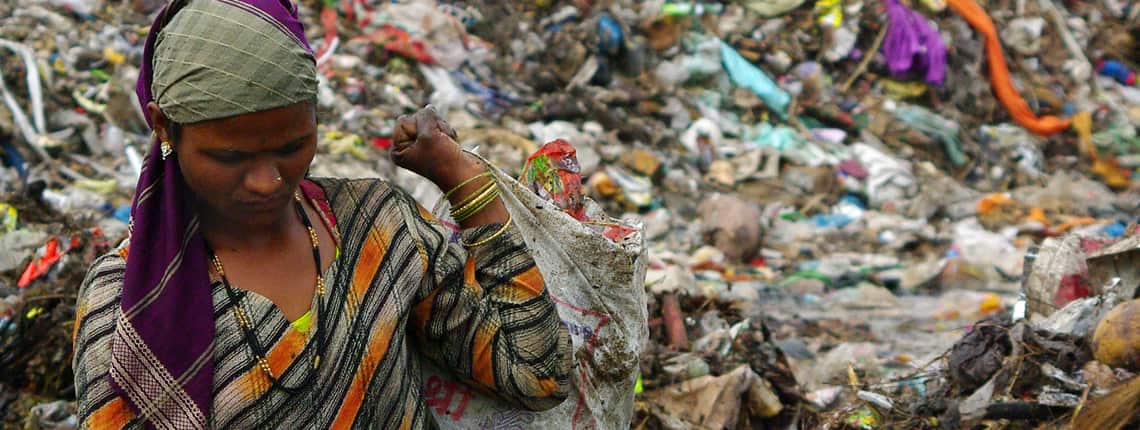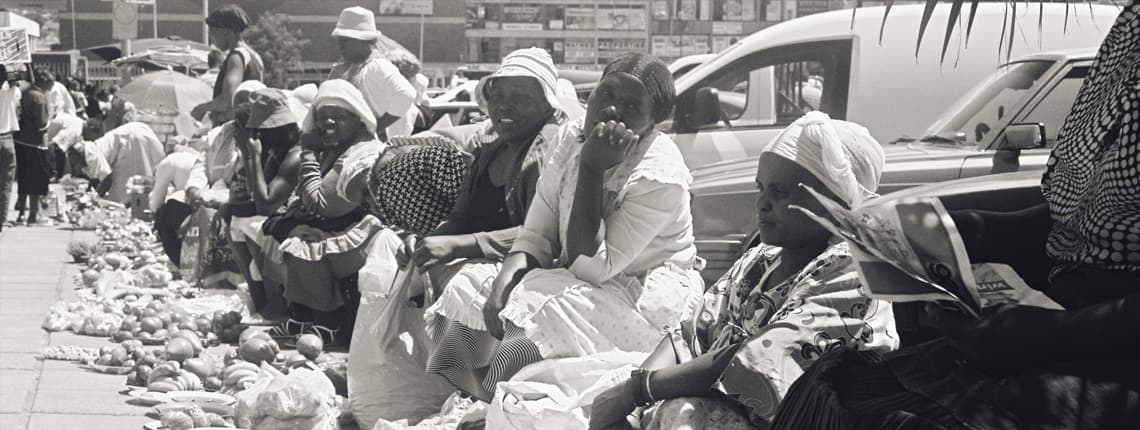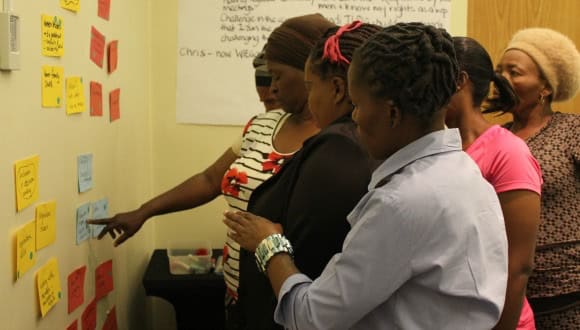All posts in Women's Economic Empowerment
-
 Post
Exposure Dialogues February 05, 2019
Post
Exposure Dialogues February 05, 2019Eye Witness: WIEGO’s Brazilian Waste Expert Dispatches from India
WIEGO’s Exposure Dialogue Programme (EDP) on Law and Informality brought global experts to Ahmedabad, India, to stay two nights in the homes...
Read More -
 Post
Livelihoods October 05, 2018
Post
Livelihoods October 05, 2018Q&A: WIEGO’s New Urban Policies Director Talks Migration, 21st-century Cities and What Inspires Her Research
This week, we sit down with WIEGO’s new Urban Policies Programme Director, Caroline Wanjiku Kihato, to learn more about her background and...
Read More -
 Post
Gender and Waste Project March 07, 2017
Post
Gender and Waste Project March 07, 2017Photo Essay: Inside Efforts to Strengthen Leadership among Women Waste Pickers
WIEGO’s Organizing and Representation Programme and Urban Policies Programme works with waste picker organizations in South Africa and Brazil...
Read More